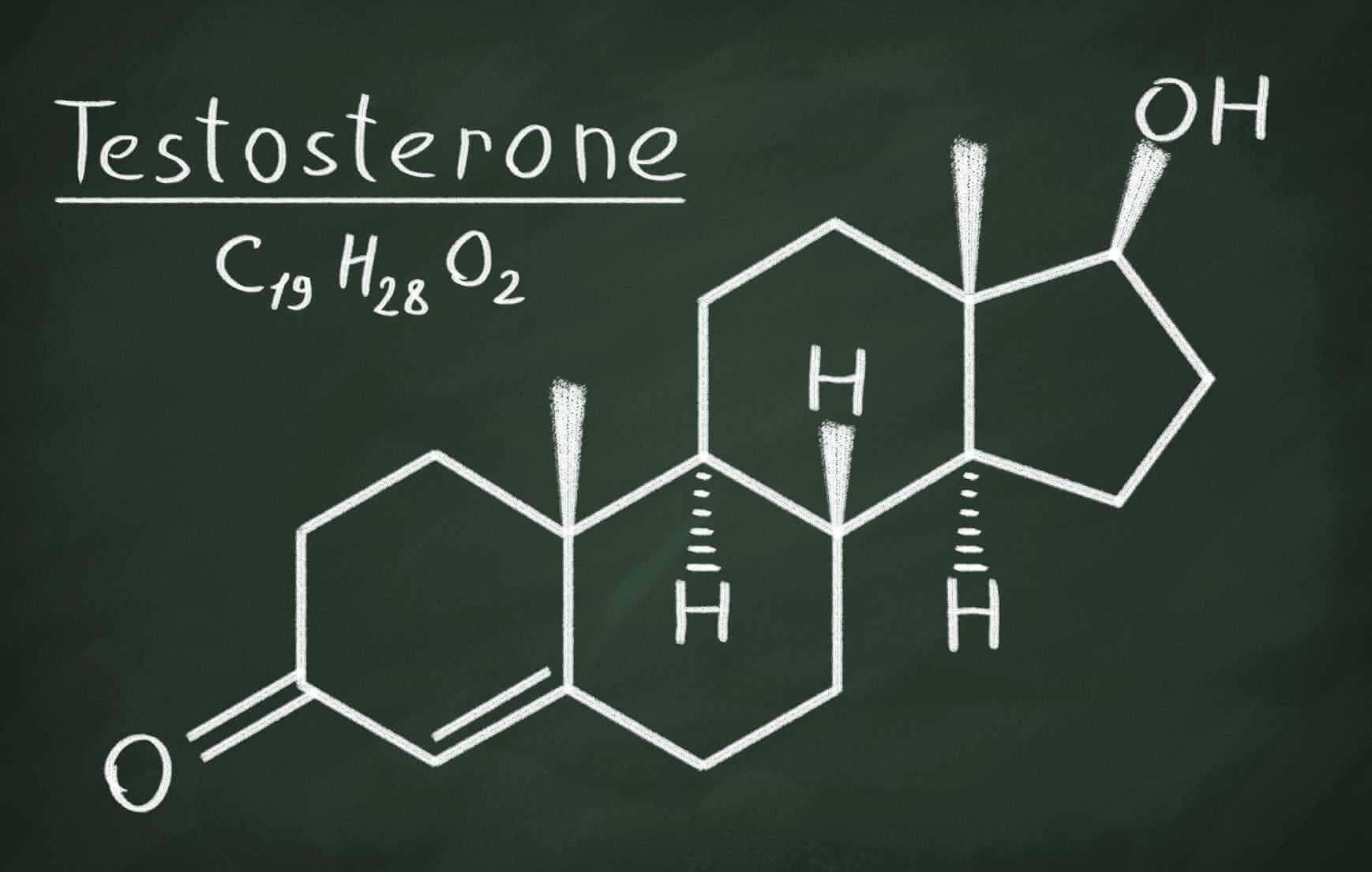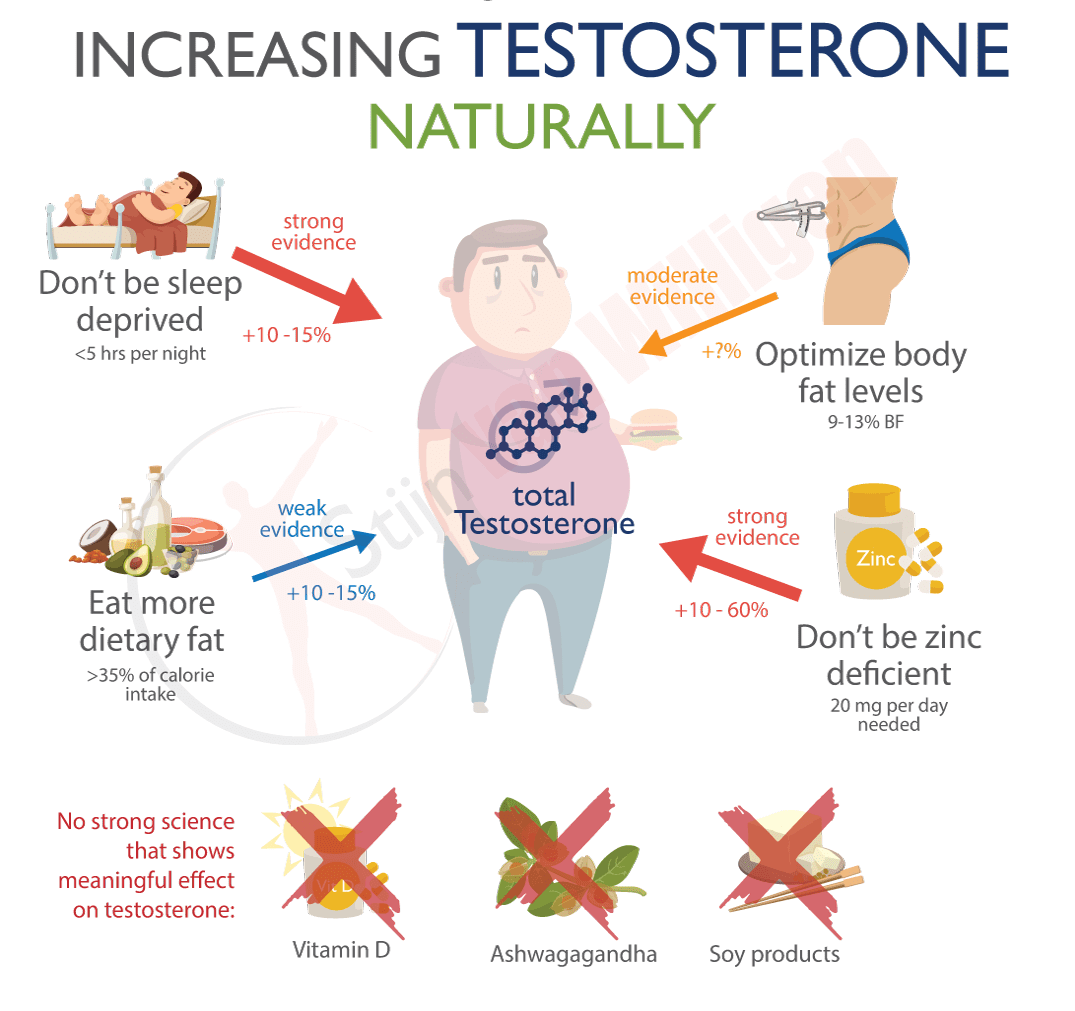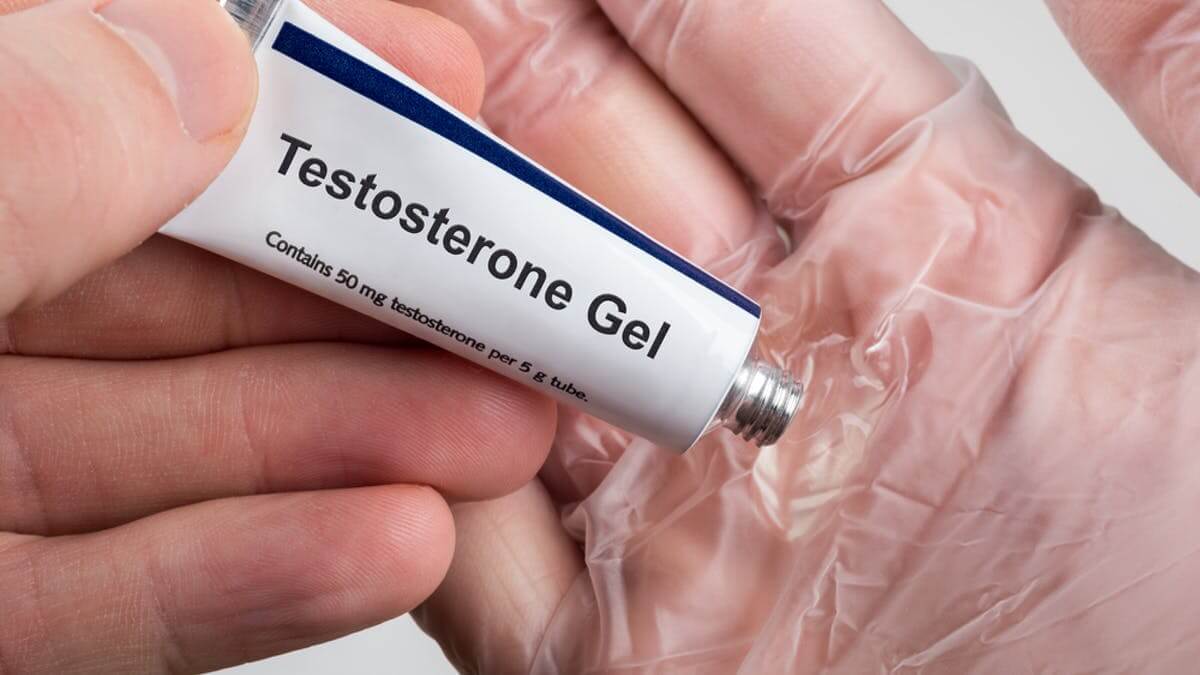Testosterone is the male sex hormone. Although it is present in both men and women, its levels are much lower in women.
In the animal world, it is present in vertebrates such as reptiles, birds and mammals. In the latter, it is produced in testes (males and male animals) and in the ovaries (females and female animals) and to a lesser extent in the adrenal glands.
Testosterone belongs to the group of androgens, that is, those hormones whose main function is to develop male sexual characteristics. It is also an anabolic, meaning that it participates in the processes of metabolism that produce more complex molecules from simpler molecules.

Characteristics Of Testosterone
1. Anabolic effects
Testosterone favors the growth of muscle mass and increases its strength (due to its effect on protein formation), increases density and strength in bones and stimulates the longitudinal growth of bones, as well as their maturation.
2. Exercise
Since naturally testosterone levels decrease with the passage of time, there are natural methods to maintain their levels and therefore their benefits. Aerobic exercise has no effect on testosterone levels, but high-intensity interval training and high-resistance, low-rep strength training do.
3. Nutrition
Testosterone levels are affected by nutrition. For example, sugar (which increases the level of insulin) decreases its levels. On the contrary, the consumption of healthy fats (from olives, coconut, nuts and organic animal products) allows the development of testosterone.
That is to say that a diet high in carbohydrates (including sugar) and low in healthy fats negatively affects testosterone levels. On the other hand, it has been shown that the consumption of zinc (present in meats, fish, raw dairy products, etc.) has drastic positive effects at these levels.

4. Aggressiveness
The relationship between testosterone levels and aggressiveness has been demonstrated. On the other hand, if there is a dominance challenge, testosterone can define the response, since it favors competitiveness. Beyond physical aggression, testosterone can help you make more risky decisions (for example, in the choice of a job or a financial investment).
5. Androgenic effects in fetuses
Before birth, testosterone activates genital virilization, the development of the prostate and seminal vesicles. There is a hypothesis that it also has effects on the subsequent gender identity. These effects occur between the fourth and the sixth week of gestation.
6. Androgenic effects in puberty
These effects occur in males during puberty, but in women they occur after prolonged periods in which levels of free testosterone in the blood were high.
These effects include: enlargement of sebaceous glands at the base of hair or hair (acne), phallic enlargement or clitoromegaly; increase in libido; increase in hair on thighs, navel, face, chest, legs and armpits; hair loss (in cases where there is a genetic predisposition for androgenic alopecia); decrease in subcutaneous fat; increase in strength and muscle mass; deepening of the voice; growth of Adam’s apple in man; male fertility; growth of eyebrows, chin, nose and other facial bones; greater width of the shoulders and rib cage; end of bone growth.

7. Health
Testosterone in adults helps maintain physical and mental energy, as well as muscle strength and volume. On the other hand, it has been shown that normal testosterone levels in men decrease the risk of cardiovascular diseases. This is important considering that testosterone levels begin to decrease in men after 30 years.
8. Paternity
Paternity decreases testosterone levels in men. Since the effects of testosterone include selfishness and aggression, a decrease in their levels allows changes in behavior that favor the care of children.
9. Lifestyle
In addition to exercise and nutrition, there are other factors in lifestyle that affect testosterone levels. Overweight is one of the factors that decrease those levels.
On the other hand, during periods of stress, the body releases cortisol, a hormone that counteracts the effects of testosterone. Another hormone that intervenes in testosterone levels is vitamin D. It is associated with lifestyle as it is obtained from exposure to the sun. However, it can also be consumed through dietary supplements.

10. Dangers
Given the benefits of this hormone and the early decrease in levels (as well as the numerous external factors that modify them), there is a chemical consumption of testosterone through pills or injections. These are more common (although forbidden by international regulations) in professional athletes, but they are also used by people who want to maintain or increase their muscle volume, beyond what the aforementioned natural methods allow.
However, if consumption is not strictly controlled, after the first doses its effect will decrease, partly because the body will stop producing its own testosterone. That is to say that the dose should be increasing.
Each substance that enters the body has an effect on all the others, and this is particularly true for testosterone, so its uncontrolled use can cause imbalances throughout the body. For example, when a too high dose of testosterone enters the body, it is transformed into estrogen, the female sex hormone, which will have opposite effects to those sought. That is why any treatment with testosterone should be administered and supervised by a doctor.